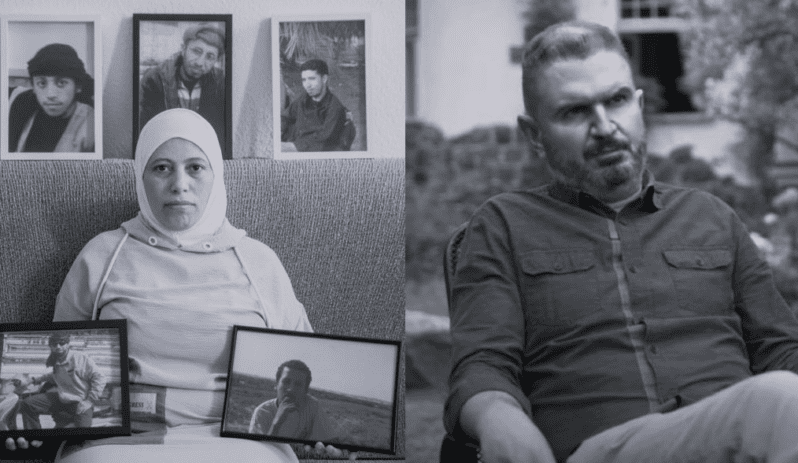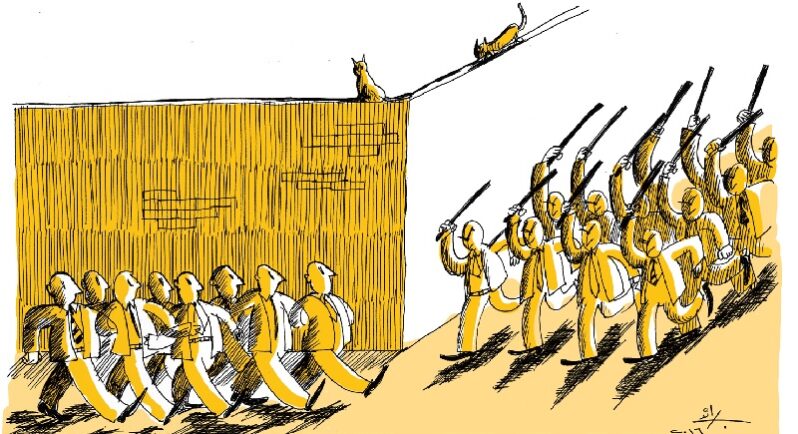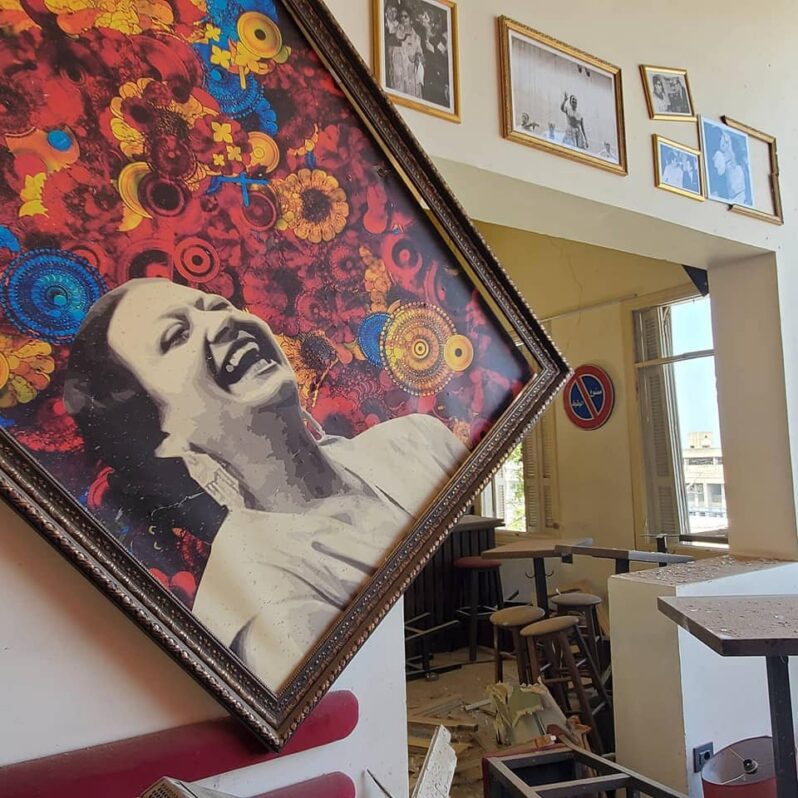Probation in Egypt: A Means of Political Retaliation?

After serving five years in prison for participating in a protest, political activist Alaa Abd El Fattah immediately began serving an additional five -year punishment described as “placement under police monitoring” [hereinafter “probation”] for the same act that saw him imprisoned. The Ministry of Interior ordered Abd ElFattah to go at 6 pm every day to his local police department, where he is placed in a room until morning. During that time, he is prohibited from having a personal computer or any means of communication such as a mobile phone. Abd El Fattah and his family believe that this violates the law and threatens his integration back into his family and his communication with his son. As such, he has filed a case before the Court of Administrative Justice against the Ministry of Interior’s decision that specifies police premises as the place where he must spend the night pursuant to his probation, arguing that were the law applied correctly, that place would be his home, which is known to the police.[1] Abd El Fattah has also filed a case to improve the conditions of his monitoring at the department. His mother, Laila Soueif, recently submitted a request to the police department for him to spend Eid al-Adha with his family without monitoring, to which the police did not respond.[2]
Abd El Fattah is only one example of dozens of political activists put on probation in recent years and suffering from the same problems and an inability to return to normal life after serving their sentences. These activists, especially those sentenced for protesting, have been targeted with probation for a period equal to their prison term, which reflects a desire to exact political revenge by punishing them for the longest time possible and negatively impacting their lives. Consequently, we must investigate the nature of probation, how it is applied to political convicts, and the potential alternatives to it.
What is Probation?
Probation is a preventative punishment handed down in some cases, particularly those of habitual offending. It may be imposed in cases of repeated perpetration of misdemeanor theft and fraud and in cases of prostitution crimes, which are considered habitual. Apparently, the lack of lighting available in public spaces in the past and the fear that it would be exploited to commit crimes were an influential factor both in the development of the rules of probation and in its imposition. Hence, we find that probation may be imposed on persons who commit certain crimes at night as specified by the legislator[3], that the convict is strictly prohibited from moving about at night without police permission, and that the convict is obliged not to carry any tools that could be used to attack people or property, or break into shops or homes. Subsequently, probationers are obliged not to leave their homes between sunset and sunrise[4] (though persons required by their work or any other legitimate reason to be out at night may be exempted)[5], and police patrols are supposed to pass by their homes to confirm their presence.[6] These are the fundamental rules of the probation process. As an exception, if the probationer has no residence or has taken up residence somewhere that is difficult to reach to confirm their presence, the police could specify a place for them to spend the night, and this place could, as a last resort, be the police department.[7]
High Order no. 18 of 1891 was the first regulation of the procedures and controls for implementing this punishment.[8] The rules did not compel the probationer to stay overnight in police departments or stations. Rather, probationers were obliged not to leave their homes between sunset and sunrise. However, the issuance of Military Governor Order no. 96 of 1940 made it possible to compel probationers to stay overnight in the police department under the aforementioned conditions.[9] Since that time, these rules have remained in effect as their text was copied into the current law, namely Law no. 99 of 1945 on Regulating Probation,[10] which witnessed no substantial amendments since the 1940s.
The apparent fundamental goal of this punishment is to limit people whose records indicate that they are professional criminals and are likely to return to crime. Hence, the objective is to protect society. Here, we must raise the question of the application of this punishment to political activists, especially those convicted for participating in protests.
How are Political Activists Put on Probation?
Judges use Supreme Council of the Armed Forces Decree Law no. 10 of 2011 on Terrifying, Intimidation, and Undermining the Peace (the “thuggery law”) to issue rulings that include mandatory probation against people arrested in protests.[11] This law includes, in addition to imprisonment, the sentence of probation for a period equal to the prison sentence handed down, with a maximum of five years. The Public Prosecution has deemed protestors thugs and, in unauthorized protesting cases, charged them with showing force in a manner that strikes terror in the police or the population. The goal of doing so is to ensure their imprisonment, as the charge of unauthorized protesting does not entail a custodial sentence, as well as to allow for them to be sentenced to probation for a period equal to the prison term.
The application of the thuggery law to people arrested for protesting without notice clearly reflects the state’s desire to retaliate against them, warning them not to oppose the regime’s policies again. The best means to achieve this is to destroy their lives for up to 10 years, initially in prison and then on probation.
Implementing Rule of Law or Arbitrary Application of the Law?
As we explained, the rule is that probationers are obliged not to leave their homes between sunset and sunrise as long as they reside in the precinct in which they are monitored. The legislators enacted one exception, namely when monitoring the probationer in their residence is infeasible, meaning that the police cannot ascertain that the probationer has not left their home during the specified hours in accordance with Article 21 of Law no. 24 of 1923.[12] This exception pertains to the residence itself, its location, and the ability to reach it. There are no exceptions related to the convict’s person or crime based on which the police may refuse to allow them to spend the night at home. In other words, if the police force wants to amend the probation conditions, it must inspect the residence and explain the aforementioned difficulties while allowing the convict the opportunity to take up residence somewhere else that suits whatever criteria it sets out so that it can perform the monitoring. But if the Ministry of Interior relies on the fact that the text gives it discretionary power to determine whether it is possible to ascertain the accused’s presence inside this residence [and whether to issue a decision compelling the probationer to stay overnight on police premises instead] without giving logical and realistic reasons, then its decision is an abuse of authority.
Currently, the issue does not end with merely forcing those sentenced to probation to stay overnight in the police departments even though the Ministry of Interior knows their residences; rather, they also experience many violations while in those departments. Most notably, they are detained in a closed room with as many as 20 detainees and without beds or conditions conducive to sleep. Note that under the law, the probationer cannot be placed in the detention facilities attached to police departments or stations as they are not under arrest, or remand or serving a prison sentence, and only those groups may be placed in prisons and detention facilities.[13] The department circumvents this prohibition by putting the probationer in a room not designated for detention and locking the doors, making it, in reality, an illegal detention room as what matters is not the room’s designation but the extent to which the individual freedom is restricted. Hence, the treatment of probationers is a form of arbitrary detention, and Abd El Fattah has described it as “half-day imprisonment”.[14] That the probationer is also prohibited from using any means of contacting the outside world or working corroborates the idea that they are detained, not monitored.
Hence, probation is transformed from a preventative measure aiming to protect society from the convict’s return to crime into the virtual destruction of probationers’ lives at night and during daytime as they cannot obtain the least amount of nightly sleep, which impairs their ability to work or study during daylight hours as well as their health and mental state.[15] This conflicts with the goal of probation as the probationer is not reformed and integrated into society. It also contravenes the probation law itself, which contains multiple articles encouraging easing and improving the probation conditions for people who work or study. Abd El Fattah resorted to the Court of Administrative Justice to improve the conditions of his overnight stay in the department and to be allowed to bring a laptop and mobile phone so that he can work there. A probationer is not a prisoner or detainee and therefore should not be deprived of tools whose possession in and of itself is not a crime.[16] The court has scheduled the case for 27 August 2019.[17]
The Need to Develop the Ways Probation is Applied
As previously mentioned, the probation law currently in effect was issued in the 1940s. Means of punishment and technology have developed, which warrants a review of this law. Firstly, the goal of applying probation must be reviewed: iIs it to ensure only that the accused does not reoffend or also to integrate them into society? Secondly, whatever the goal may be, restricting freedom of movement will not achieve it, so thought should be given to using technology such as ankle monitors and obliging the probationer not to leave the city limits, for example. In parallel, steps could be taken to integrate them into society and ensure they find a stable life wherein they never return to their crime. An ankle monitor is difficult to remove without breaking, and if the convict breaks it, removes it, or leaves the area permitted by the police, it sends a signal to the police specifying their location, and they can be tried for violating probation under Law no. 99 of 1945. This advanced form of probation is used in the United Arab Emirates, Saudi Arabia, Algeria, and many other countries. Abd El Fattah has agreed to wear an ankle bracelet, even if he must pay for one himself.[18]
Moreover, I must stress that using the thuggery law against protesters and the state’s attempt to punish, by all means and with the harshest punishment possible, whosoever opposes it clearly reflects the use of the law as a means of exacting revenge. This significantly changes the punitive philosophy upon which the Egyptian Penal Code is based whereby any punitive law is supposed to be based on the proportionality of punishment, reform, and integration into society. Altering this philosophy in legislation and the judicial institution’s adoption of this [altered] philosophy portends a radical change that may have dire consequences in the long term.
This article is an edited translation from Arabic.
Keywords: Alaa Abd El Fattah, Political Activist, Imprisonment, Probation, Egypt
[1] See “’Ala’ ‘Abd al-Fattah Yarfa’ Da’wa Qada’iyya li-Naql Makan Tanfidh al-Muraqaba min Qism al-Duqqi ila Maskanihi”, Egyptian Center for Economic & Social Rights, 1 August 2019.
[2] See Laya Soueif’s Facebook page.
[3] Article 356 and Article 368 of the Penal Code.
[4] Article 5 and Article 7 of Law no. 99 of 1945 on Probation.
[5] Article 8 of Law no. 99 of 1945.
[6] Article 21 of Law no. 24 of 1923, published in Issue 68 of al-Waqa’i’ al-Misriyya on 5 July 1923.
[7] Article 5 of Law no. 99 of 1945.
[8] Issue 79 of al-Waqa’i’ al-Misriyya, published on 13 July 1891.
[9] Issue 142 of al-Waqa’i’ al-Misriyya, published on 20 October 1940.
[10] Issue 145 bis (a) of al-Waqa’i’ al-Misriyya, published 4 October, 1945.
[11] Issue 10 (supplement) of al-Jarida al-Rasmiyya (the official gazette), published 10 March 2011.
[12] Article 21 of Law no. 24 of 1923 stipulates that
The police may take all necessary measures to ascertain that the probationer has not left his home during the specified hours. However, the police may not enter the probationer’s home unless he refuses to present himself after being warned twice and on the condition that this occurs in the presence of two policemen, one of whom is an officer, or of the mayor and the chief of the guards.
[13] Article 41 of the Code of Criminal Procedure and Article 1 bis and Article 85 of Prisons Regulation Law no. 396 of 1956.
[14] “’Sijn Nusf al-Yawm’: Nushata’ Yasifun al-Muraqaba al-Shurtiyya fi Misr ‘ala al-Sujana’ al-Sabiqin bi-annaha ‘Nusf Hurriyya’”, BBC Arabic, 10 April 2019.
[15] Ibid.
[16] “Alaa’ ‘Abd al-Fattah Yat’an li-Tamkinihi min Istihab ‘Labtup wa-Mubayil’ khilal Sa’at al-Muraqaba”, Al Shorouk, 3 July 2019.
[17] See the Facebook post by the Egyptian Center for Economic & Social Rights, 9 July 2019.
[18] “’Sijn Nusf al-Yawm’”, op. cit.



